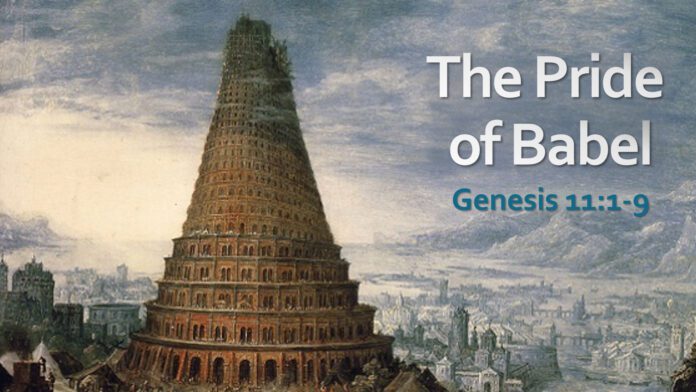Recently, I received a letter from someone deep in Bible study asking for help. Their question revealed their honesty and hunger for the Lord — “How do we recognize God’s glory and presence in verses that don’t express His love clearly?”
It’s a good question! Discipleship produces this kind of question when someone honestly engages God’s Word and wrestles with its implications.
Moments like these remind me why pastoral ministry matters. The world has grown tired of shallow answers. We all look for glimpses of God’s heart, even in the hard parts of Scripture. My friend’s question took me back to a moment when I encountered a confusing passage.
When Babel Made No Sense to Me
The first time I read the story of Babel, I wasn’t a faithful follower of Jesus. I was an English major, traipsing through a study of Beowulf with a newly budding appreciation of how language progresses over time. One day, while talking about how Old English morphed into modern English through French’s heavy influences, my grandmother said, “Languages exist because God confused human speech at the Tower of Babel.”
I didn’t believe her. Her story sounded like something she had made up. Back then, before I knew God myself, I recognized Him but thought He was interested only in eternity, not the mundane details of life. Still, curiosity got the better of me. I looked up the story in my Bible, and sure enough, in Genesis 11, there it was.
I didn’t understand the story just by reading it. In fact, it made me less interested in knowing the God who would destroy something creative and ambitious. I saw Babel as God squashing progress. Years later, I’ve seen that same narrative differently after coming to know the Lord, being disciplined, and pastoring a church.
A Monument to Pride, Not Progress
With more context, Genesis 11 becomes clearer. After the flood, God commanded Noah and his family to “Be fruitful and multiply and fill the earth” (Gen. 9:1 ESV). The construction of the Tower of Babel directly rejected that command. Instead of spreading out, humanity gathered together. Instead of worshiping God, they sought to “make a name” for themselves (Gen. 11:4). The tower wasn’t innovative. It was insubordinate.
What looked like progress covered up human pride. I now see that Babel was not a triumph of human ingenuity but a monument to self-sufficiency. Driven by fear of being forgotten and a desire to matter apart from God, human nature seeks to establish itself. We still do this today.
As pastors, parents and ministry leaders, we may not build towers of brick and mortar, but we are tempted to construct platforms and reputations. We should be challenged to ask ourselves whether we are seeking to exalt the name of Christ or make a name for ourselves.
God’s Mercy in Disruption
God didn’t come down to Babel because He felt threatened. God intervened because He is attentive and faithful to preserve His purposes. By confusing the people’s language, God scattered humanity across the earth. It may look like punishment on the surface, but it was actually mercy. Left unchecked, their unity would have calcified into disobedience. Confusion today was better than corruption tomorrow.
Sometimes, God lovingly interrupts our plans to save us from long-term destruction. Ministry setbacks, personal disappointments or even seasons of confusion may feel like failure. They may be the grace of God steering us toward His will. His discipline is always aimed at restoration, and His redirection is always purposeful.
The Gospel Reverses Babel
The story doesn’t end at Babel. God didn’t leave humanity fractured. In Acts 2, something remarkable happens — the curse of confused tongues is reversed. At Pentecost, people from many nations heard the gospel in their own languages.
Where Babel scattered people in judgment, the gospel gathers humanity in grace. Though the world’s languages remain diverse, Pentecost revealed that God’s mission transcends every barrier. It was not uniformity, but unity in the Spirit that reversed Babel.
The gospel reveals God’s desire to form a people for Himself. We are called to be united by purpose rather than pride. Rather than building for our names’ sake, we proclaim His.
His Love Behind the Confusion
To the person wondering where God’s love is in a story like Babel, know that what is hard to see from a human perspective becomes more prevalent as we continue to walk with Him. In Genesis 11, rather than seeing God’s anger when humanity worked together, I know the heart of my Father grieves when we try to do the work without Him. God is not far off. He is involved, intentional and loving — even when He confuses our plans.
So, the next time your “tower” falls, ask what went wrong and what God might be doing right. His mercy often wears the disguise of disruption. And even when His ways are hard to understand, we can trust that they are always good.



